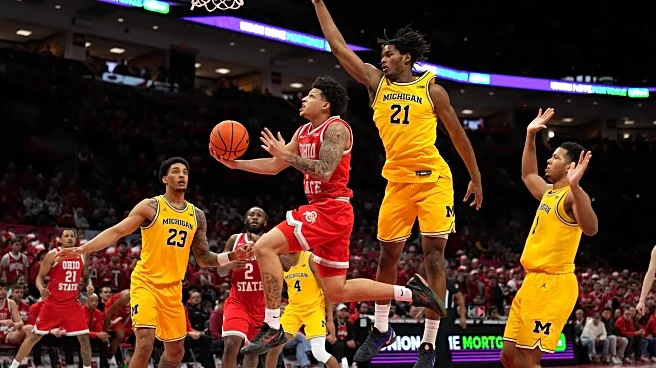What's Happening?
A recent report by wealth intelligence platform Altrata highlights that nearly a fifth of the world's richest individuals reside in just ten cities globally, with New York leading the list. The city is home
to 21,380 ultra-wealthy residents, defined as individuals with a net worth exceeding $30 million. This marks a 23% increase from the previous year. The report, which includes data up to June 2025, suggests that New York's status as a major financial hub contributes to its appeal for affluent individuals. Other U.S. cities such as Los Angeles, San Francisco, Chicago, Dallas, Washington, D.C., and Houston also feature prominently on the list, reflecting significant growth in their ultra-wealthy populations.
Why It's Important?
The concentration of ultra-wealthy individuals in major U.S. cities underscores the country's dominant position in global wealth distribution. This trend has implications for local economies, as the presence of affluent residents can drive demand for luxury goods and services, real estate, and investment opportunities. Additionally, the growth of this demographic may influence urban development and policy decisions, as cities seek to accommodate and attract high-net-worth individuals. The report also highlights the disparity in wealth distribution, with the ultra-wealthy holding a significant portion of global wealth despite representing a small fraction of the population.
What's Next?
As the population of ultra-wealthy individuals continues to grow, cities may face challenges related to housing affordability, infrastructure demands, and social inequality. Policymakers and urban planners will need to address these issues to ensure sustainable development and equitable access to resources. Furthermore, the increasing concentration of wealth in specific areas may prompt discussions on taxation and wealth redistribution policies. The report projects that the number of individuals with a net worth over $30 million could rise significantly by 2030, potentially reshaping economic landscapes and influencing global financial markets.
Beyond the Headlines
The rise in ultra-wealthy populations in U.S. cities may have cultural and social implications, influencing trends in philanthropy, education, and community engagement. As affluent individuals seek to leave a legacy, there may be increased investment in cultural institutions, educational initiatives, and social causes. Additionally, the presence of high-net-worth individuals can impact local communities, potentially leading to gentrification and changes in neighborhood dynamics. Understanding these broader effects is crucial for fostering inclusive growth and addressing the challenges associated with wealth concentration.









